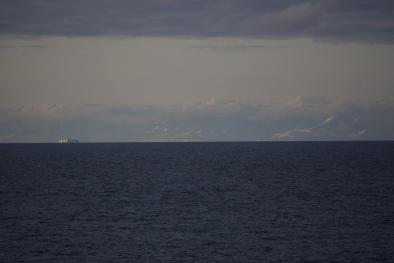Science Source
Recent slowing of Atlantic overturning circulation as a recovery from earlier strengthening
- States the Atlantic meridional overturning circulation (AMOC) has weakened substantially over the past decade
- States some weakening may already have occurred over the past century, and global climate models project further weakening in response to anthropogenic climate change
- States, however, that ocean model simulations based on historical conditions have often found an increase in overturning up to the mid-1990s, followed by a decrease; therefore, it is not clear whether the observed weakening over the past decade is part of decadal variability or a persistent weakening
- Examines a state-of-the-art global-ocean reanalysis product, GloSea5, which covers the years 1989 to 2015 and closely matches observations of the AMOC at 26.5° N, capturing the interannual variability and decadal trend with unprecedented accuracy
- Finds the reanalysis data place the ten years of observations—April 2004 to February 2014—into a longer-term context and suggest that the observed decrease in the overturning circulation is consistent with a recovery following a previous increase
- Finds that density anomalies that propagate southwards from the Labrador Sea are the most likely cause of these variations
- Concludes that decadal variability probably played a key role in the decline of the AMOC observed over the past decade
Related Content
Science Source
| Nature Climate Change
Connecting AMOC changes
Annalisa Cherchi
Science Source
| Nature Climate Change
Increased risk of a shutdown of ocean convection posed by warm North Atlantic summers
Marilena Oltmanns, Johannes Karstensen, Jürgen Fischer
Headline

Mar 15, 2018 | Washington Post
The fast-melting Arctic is already messing with the ocean’s circulation, scientists say
Science Source
| Nature Climate Change
Arctic sea-ice decline weakens the Atlantic Meridional Overturning Circulation
Florian Sévellec, Alexey V. Fedorov, Wei Liu


